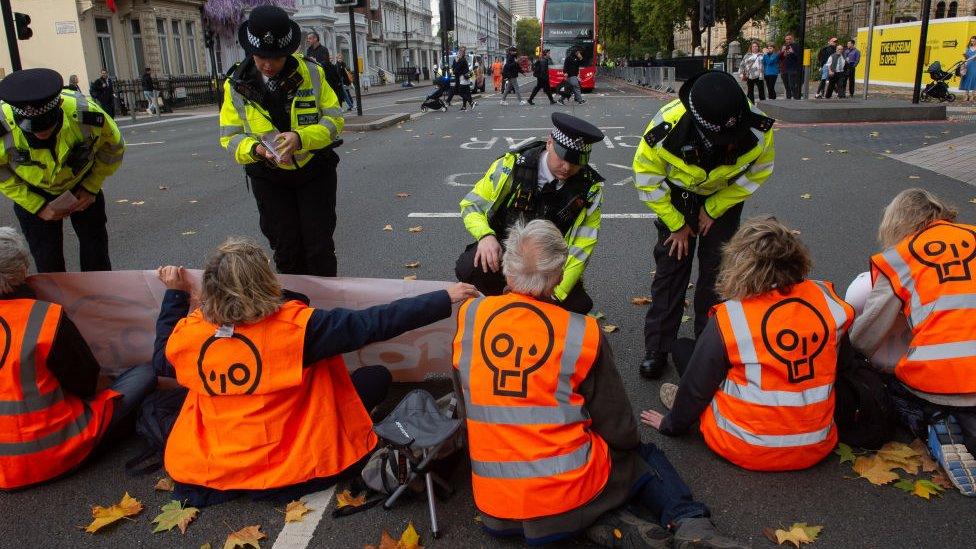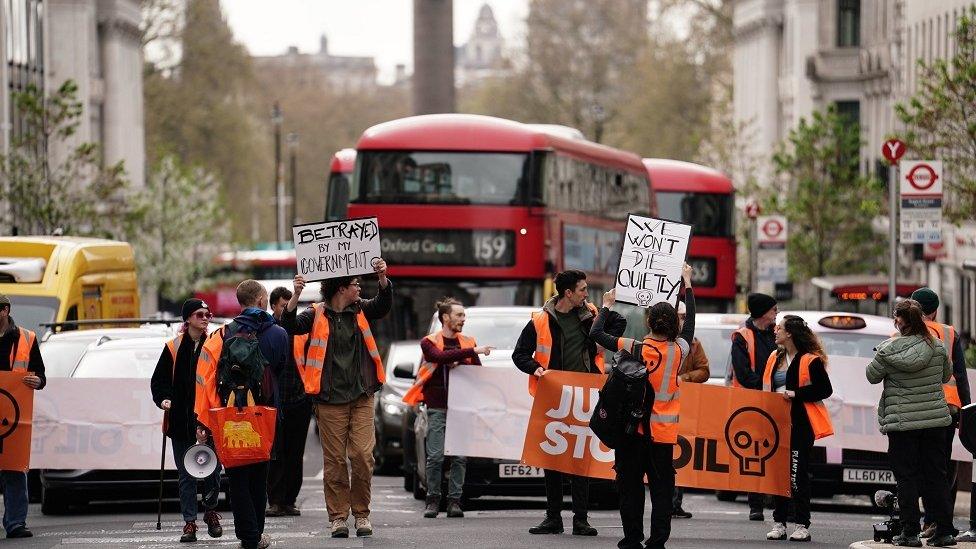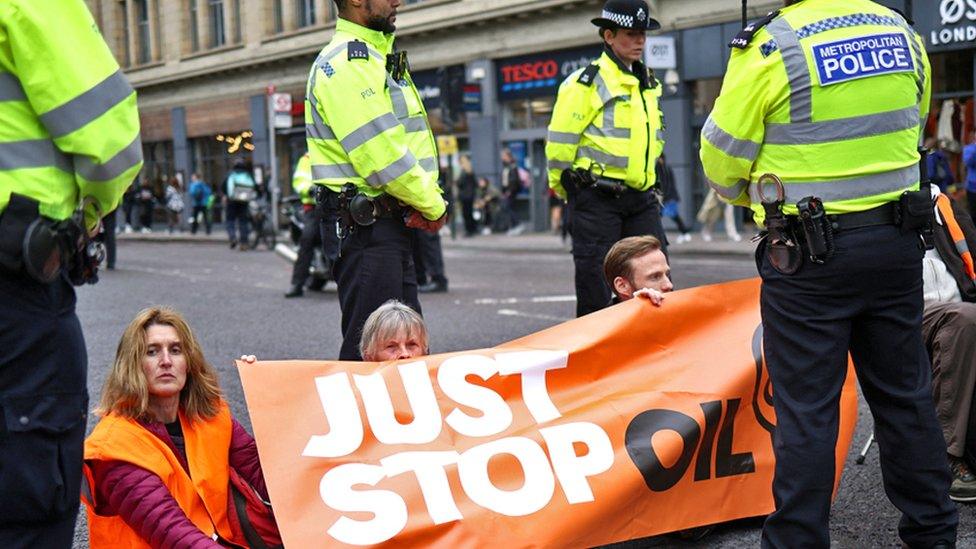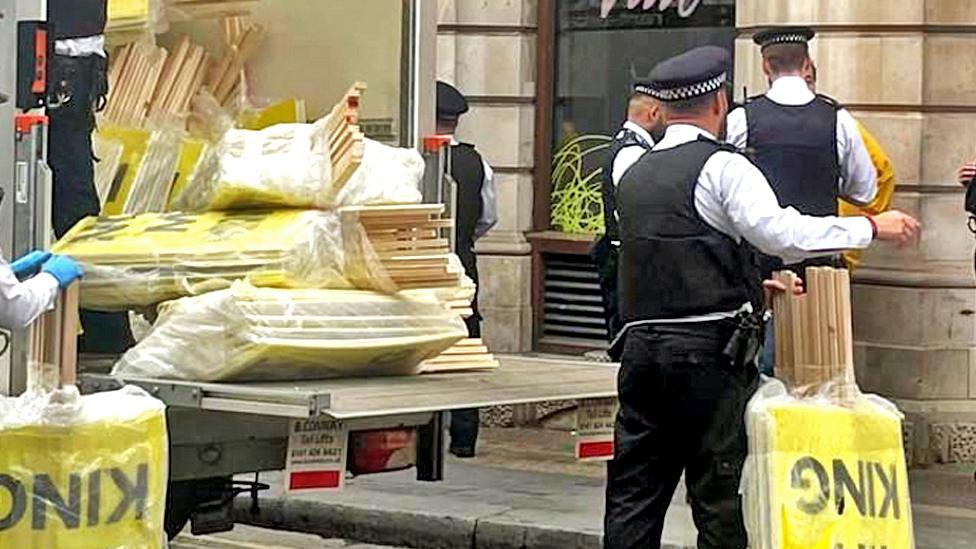Police to be given clearer powers on slow-walk protests
- Published

Environmental activists Just Stop Oil are among those to use tactics such as blocking roads
Police in England and Wales are to be given clearer powers to stop protests deemed to be seriously disruptive, in a law approved by Parliament.
The House of Lords voted through the new regulations, despite an attempt to block them by an opposition peer.
The new law gives officers more leeway to intervene when protesters attempt to block roads with slow marching.
The tactic has been used by protest groups such as Extinction Rebellion, Just Stop Oil and Insulate Britain.
The new law follows last month's passage of the Public Order Act, legislation designed to beef up police powers to clamp down on protests judged to be disruptive.
The government says the new regulations are needed because the police lack clarity on when their existing powers can be used.
The regulations lower the threshold for what kind of protest activity is considered "serious disruption".
Home Secretary Suella Braverman said the impact of "disruptors" from certain protest groups had been "huge" and "the police must be able to stop this happening".
But critics have branded the new measures an attack on the right to protest and argue that the police are already capable of stopping slow-walking demonstrations under current laws.
The regulations were backed by MPs in a vote on Monday, with 277 in favour and 217 against.
In the House of Lords on Tuesday, some opposition peers tried some parliamentary manoeuvres to prevent the regulations from becoming law.
Ministers had already tried to ban slow-walking protests by adding measures to the Public Order Act but were narrowly defeated by peers.
Given this, Baroness Jones, a Green peer, had tabled a "fatal motion", which invited members to decline to approve the regulations because Parliament had already rejected them.
Urging peers to back her motion, Baroness Jones said this was an "authoritarian law that hands power to decide what is a good protest or a bad protest over to the police and the Home Office".
She said the law was "being enacted in an authoritarian manner by ministerial decree".
Home Office minister Lord Sharpe called the baroness' motion "highly unusual", arguing it sought "to strike down legislation passed by the elected House and undermine sensible changes, which bring clarity and consistency to the law".
The baroness' motion was not successful, with peers voting against it by 68 votes to 154, a majority of 86.
While peers condemned the government's actions in bringing back regulations that had been previously rejected by peers in primary legislation, Labour did not support the fatal motion, because of a convention to accept the will of the elected House of Commons.
A few minutes earlier, peers had backed a Labour "regret motion" - which set out criticisms of the regulations but did not block them - by 177 votes to 141.
Police have been under a lot of pressure from politicians over how they handle protests with recent actions by Just Stop Oil.
But the powers given to police in the Public Order Act were criticised as too crude and too broad, following the arrest of anti-monarchy protesters on the day of King Charles's Coronation.
The 2023 Public Order Act is the government's second major piece of legislation changing protest laws in under two years.
In 2022, MPs voted to place greater restrictions on public processions if they were too noisy.
- Published28 April 2023

- Published7 February 2023

- Published9 May 2023
